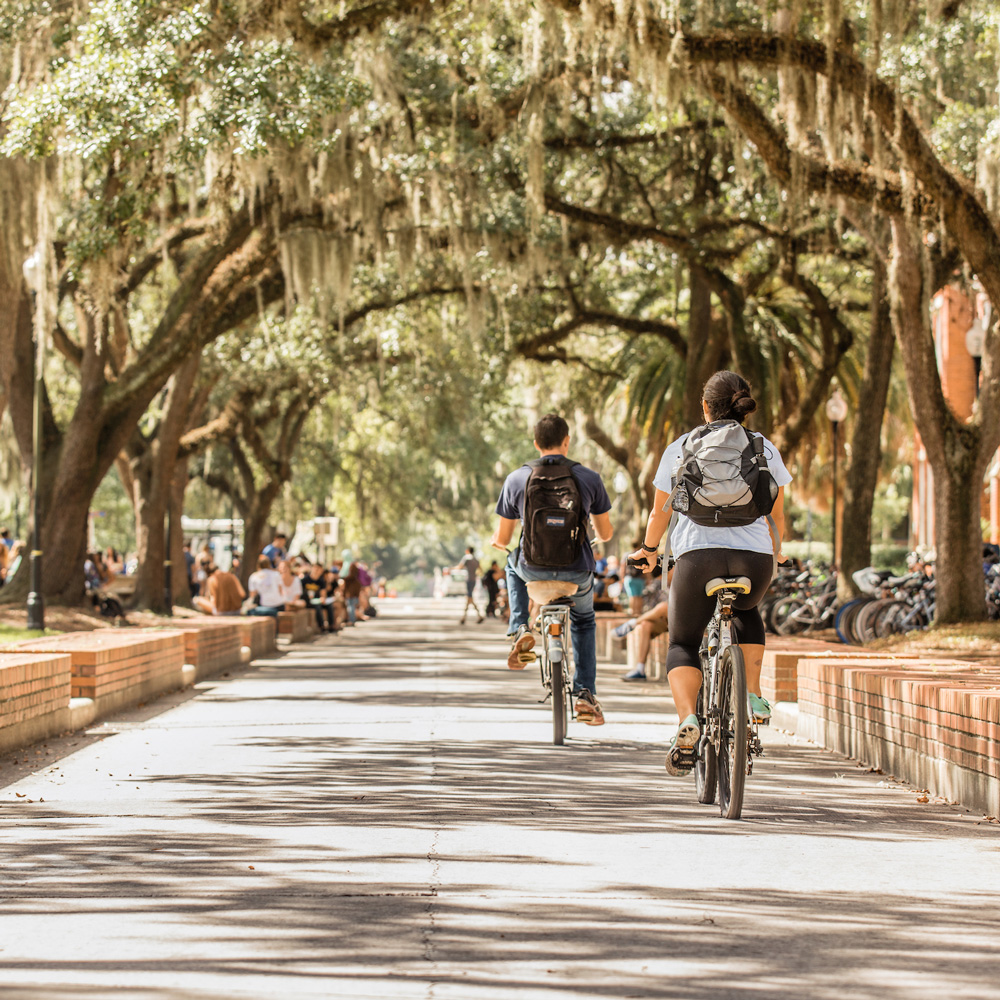
The University of Florida recently received two recognitions for its efforts toward sustainability and environmentally friendly practices.
For the first time ever, UF was awarded silver level status as a “Bicycle Friendly University” by the League of American Bicyclists.
Additionally, UF has earned Tree Campus USA recognition for the fourth year in a row by the Arbor Day Foundation. In order to receive this recognition, UF had to meet five core standards for sustainable campus forestry, according to the Arbor Day Foundation: establishment of a tree advisory committee, evidence of a campus tree-care plan, dedicated annual expenditures for its campus tree program, an Arbor Day observance and the sponsorship of student service-learning projects.
“These recognitions reinforce UF’s commitment to a sustainable campus,” said UF Sustainability Program Coordinator Liz Storn. “It also shows that our efforts are being noticed and that we really can make a difference.”
UF has a number of programs and initiatives that helped it receive the silver level “Bicycle Friendly University” recognition, said UF Sustainability Office Manager Jacob Adams. This includes 13 miles of bike lanes and 22 self-service bike repair stations, the Gator Gears bike rental program, the UF Bicycle Working Group, its Sustainable Transportation Fair, and the What Moves You? Campaign, which encourages the UF community to choose sustainable transportation options.
There were several standout initiatives that led to the Tree Campus USA certification, said Storn, including a series of “Green and Clean” service learning events that allowed students, faculty and staff the opportunity to help remove invasive species and trash from open spaces on campus. The next Green and Clean event will be March 18 at 9:30 a.m. at the parking lot immediately south of the Pony Field.
The UF Sustainability Office also hosted a cross-campus Arbor Day Celebration near Lake Alice in early 2016, which included members of IFAS and President Kent Fuchs in attendance, Storn said. A Bermuda Cedar, Peve Minaret Bald Cypress, Easter Red Cedar and a white oak were planted, and School of Forest Resources and Conservation Director Tim White spoke, recognizing the importance of the trees.